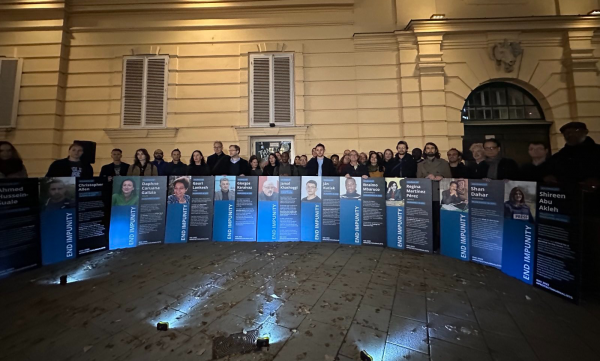The North American Committee of the International Press Institute (IPI) today called on media outlets worldwide to exercise greater care in deploying correspondents to Syria, citing an epidemic of kidnappings of journalists in the war-torn country.
The Associated Press (AP) recently reported that at least 30 journalists have been detained in Syria and 52 killed since the current conflict between loyalist and anti-government forces began in March 2011.
Those figures are consistent with the records of IPI, which in September calculated that at least 34 journalists were held or missing in Syria and that 51 journalists had died during the conflict.
“The number of journalists who have gone missing, been kidnapped or killed in Syria is shocking,” Miami Herald World Editor John Yearwood, a vice chair of IPI’s Executive Board and the chair of IPI’s North American Committee, said. “The industry needs to take urgent action to reverse this disturbing trend.”
IPI’s North American Committee made the call for greater care in the wake of an Oct. 31 meeting in Toronto of IPI’s Foreign Editors Circle, which brought together leading international news editors from the United States and Canada to discuss journalists’ safety, among other issues.
Yearwood said that the situation in Syria illustrated the need for media outlets to continue working to overcome a “cowboy culture” and to conduct comprehensive risk assessments before sending correspondents into conflict zones, including gauging the trustworthiness of local fixers and interpreters upon whom correspondents rely. He emphasised the importance of keeping an open line of communications with correspondents and continuing to reassess the situation as time progresses.
He also said that media outlets should develop contingency plans in the event of a kidnapping, including potential extraction plans and response protocols that contemplate the involvement of the journalist’s family and governments in decision-making. He acknowledged that a tendency among some media outlets to engage in a news blackout after a correspondent goes missing or is detained could potentially serve to obscure the real risks of deploying to a country.
Urging media outlets to remember that the use of freelance journalists to cover conflict zones carried both possible legal and moral obligations, Yearwood said that relying on freelance correspondents could potentially encourage risky behaviour by those insufficiently experienced or prepared to deal with circumstances on the ground.
He noted that a number of groups – including the International News Safety Institute (INSI), Reporters Instructed in Saving Colleagues (RISC), the Rory Peck Trust and the Overseas Press Club of America, among others – offer helpful resources for both aspiring and experienced journalists.


